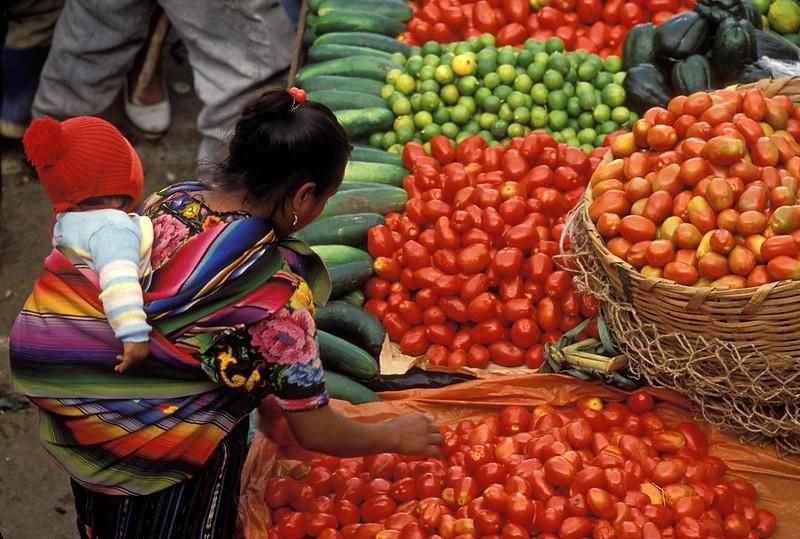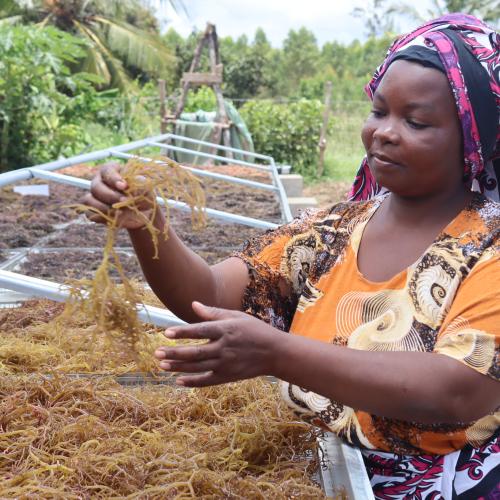Empowering women in agricultural value chains for a low-carbon transition in Central America

Context
Latin America and the Caribbean’s greenhouse gas emissions (GHG) represent less than 10% of global emissions, yet some of the most vulnerable areas to climate change are in the region. For example, the three countries included in this project, El Salvador, Guatemala, and Nicaragua, are part of the Central American Dry Corridor, one of the world´s most vulnerable areas to climate change. Increases in temperature and decreases in rainfall could decrease agricultural productivity by 2030, threatening the food security of smallholder producers, who are among the most vulnerable populations in these countries.
The Paris Agreement highlights the importance of promoting gender equality, social inclusivity, and the empowerment of women while transitioning to a net-zero and resilient economy. Currently, there are several programmes being implemented that promote sustainable production. However, there is a lack of knowledge of gender gaps across the agricultural value chains and how to create new job opportunities for women in the sector. The coupling of women’s integration into agricultural value chains of large corporations with the transition to a low-carbon economy presents an opportunity to not only significantly increase women's income generation, but to also create jobs that are resilient to climate impacts.
Objectives
The overall objective is to promote women's empowerment in the cocoa and tomato agricultural value chains in El Salvador, Guatemala and Nicaragua while, at the same time, contributing towards a net-zero carbon transition in Central America.
Specific objectives include:
- Developing a strategy to reduce the carbon and water footprints in the tomato and cocoa value chains by informing sustainable agri-business practices.
- Enhancing the economic opportunities for women in the tomato and cocoa value chains by strengthening their businesses and agricultural practices, and carbon and water management skills, with the support of value-chain stakeholders.
- Providing evidence supporting the establishment of a multi-stakeholder alliance to support women leaders, which can help achieve a net-zero carbon target in agricultural value chains in Central America.
Partners
The project is led by Fundación Salvadoreña para el Desarrollo Económico y Social (FUSADES), in collaboration with Asociación de Investigación y Estudios Sociales (ASÍES) and CoreWoman.
Activities
We aim to develop a three-part strategy:
- We need to understand what needs to change. We will produce a complete description of the two value-chains, including mapping stakeholders, context analysis, but mainly describing current business models, including agricultural and business practices along the value chain using a life cycle approach, and estimating carbon and water footprints.
We will perform a gender gap analysis using CoreWoman’s systemic approach to understand the structural, behavioural and internal barriers that affect (and if reduced can promote) women’s participation, their income generation, the quality of their work and their wellbeing.
- We will develop a series of capacity strengthening activities with the evidence produced, which if effective, can be turned into scalable solutions. We want to enhance the economic opportunities for women by strengthening their businesses and agricultural practices, and carbon and water management skills, with the support of value-chain stakeholders.
We will design/produce or adapt training materials, including adapting CoreWoman’s tools accordingly. We will develop capacity strengthening protocols to be implemented with three groups of stakeholders: private sector, technical staff and producers (not limited to women).
- We will establish a green women’s multi-stakeholder alliance. We will be involving different stakeholders along the value chains, and also national, regional and international institutions in the development of activities and by sharing with them results and evidence as they are generated.
Contact
Margarita Beneke de Sanfeliú, FUSADES: msanfeliu@fusades.org


